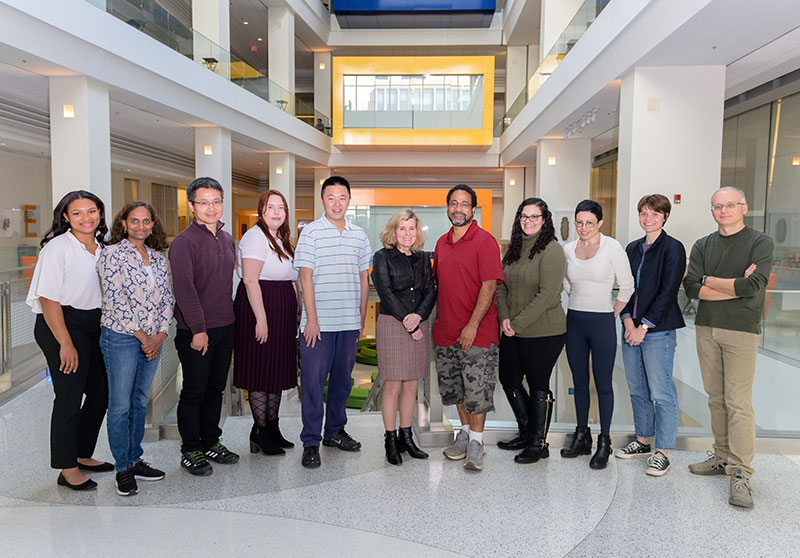Home

Tracey Rouault's Section on Human Iron Metabolism studies mammalian iron metabolism by using mouse models, tissue culture and cell lines from patients. Rouault previously identified and characterized two major cytosolic iron regulatory proteins (IRPs). Targeted deletion of each IRP in mice revealed that misregulation of iron metabolism due to loss of IRP2 causes functional iron deficiency, erythropoietic protoporphyria, anemia, and neurodegeneration in animals and a few human patients. Deletion of IRP1 causes polycythemia and pulmonary hypertension. The Section also focuses on mammalian iron-sulfur cluster assembly, and its researchers have characterized numerous mammalian genes involved in iron-sulfur cluster synthesis, developing in vitro and in vivo methods to assess cluster biogenesis. They recently discovered a peptide motif to which the iron-sulfur transfer complex binds in many iron-sulfur recipient proteins. Their discoveries may promote understanding and treatment of neurodegenerative diseases, especially Parkinson's disease and Friedreich ataxia, hematologic disorders such as refractory anemias, polycythemia and erythropoietic protoporphyria, some rare myopathies, and familial renal cancers.
Opportunities:
Please contact Tracey Rouault at rouault@nih.gov for information regarding the availability of post-doctoral and graduate fellowship positions in the lab. Graduate students may apply through the Graduate Partnership Program that sponsors doctoral students at NIH through partnerships with various Universities, including University of Maryland, Johns Hopkins University, Oxford University (UK), or Cambridge University (UK).
 BACK TO TOP
BACK TO TOP